How do I get rid of swarming bees in my yard?
swarmed
16 years ago
Featured Answer
Sort by:Oldest
Comments (6)
tonybeeguy
16 years agoRelated Discussions
help i have a swarm of bees around my pond that wont leave!!
Comments (7)I second what lazygardens said. They seem pretty focused on getting to the water, getting some and beating it back to the hive asap. They really don't want any trouble. They use the water primarily for cooling the hive. So you might see more or fewer depending on the temperature and time of day. I've only ever seen like maybe 10 max at a time taking water, normally more like 4-5. Not sure how big this pond is but what I've done before is place a little shade cloth into the pond so the bees can land there and walk down to the water. They seem to like that. Maybe they feel some protection from getting eaten by fish. Place this furthest away from people. This is mainly to keep the people from freaking out. Killing these bees wouldn't really change anything because the hive would just send replacements. Killing the entire hive or moving it is only possible if it's on your property. Bees can travel pretty far and we could even be talking about multiple hive. Plus I'd expect a new hive to move back in sometime down the road....See MoreSnow-In-Summer/bee balm : How do I get rid of the roots/runners?
Comments (4)First, a cautionary note. Is it 'Snow in Summer' (cerastium Tomentosa) or 'Snow on the Mountain' (Aegopodium)? These two are often confused when gardeners use their common names which is why you should ID them properly. If it's the 'summer', then you can do what you suggest without a problem. If it's 'Mountain', then I would file the whole lot under G (garbage) and dispose of it as far away from your property as possible. This is a plant which will take over and even the smallest roots will form another plant to take over whatever space it can. In the right place it can actually be stunning, but will need deep unbroken borders to keep it in check and should never be left to go to seed. A neighbor of mine tried to snuff out an area of the Aegopodium by cutting it back to the ground with a weed whacker, then covering with 2 layers of landscape fabric, then applying a foot of fresh wood chips. Two seasons later it returned with a vengeance forcing it's way through the overlapping seams and creeping out through the perimeter. The roots of the Bee Balm usually run in the first few inches of the soil, so burying them a bit deep would be OK....See MoreHow do I get rid of my P. incarnata
Comments (4)I've grown both the purple passiflora and the blue. I can't remember their names right now. I know one is incarnata. The purple one comes up each year and has multi flowers and fruit. The blue one just grows and produces leaves. It eventually grows over our ranch type home. This week I reached in back of a shelf in our enclosed glass/screen patio room and found two three foot long passiflora plants growing from under our patio rug! The floor is concrete and we covered it with indoor/outdoor carpeting. Rather than trim the carpeting to fit flat wall to wall, we let the carpeting along the house run 4 inches up the brick. That is where the plants are growing. I have no idea how they got there. I did take a picture of the surprise plants, but I don't know how to post pictures. Jan_Z Zone 5 MI...See MoreFire Ants: How do I know I have them and how do I get rid of them
Comments (2)Fire ants make mounds and not holes. The mounds start out small and become larger as the colony population increases. These mounds look rather innocent until you disturb them, and ALL of the ants boil out of the mound all at once. Again, there is never a discernible hole. I never worry about ants in my yard and garden, other than fire ants. Fire ants can be a problem for humans, pets, bird nests, beneficial insect eggs and larvae, and such....See Morebandit_tx
16 years agovlcek79
15 years agotonybeeguy
15 years agoMylovelybees_gmail_com
13 years ago
Related Stories

MOST POPULARHow to Get Rid of Those Pesky Summer Fruit Flies
Learn what fruit flies are, how to prevent them and how to get rid of them in your home
Full Story
GARDENING AND LANDSCAPING4 Good Ways to Get Rid of Mosquitos in Your Yard
Stay safe from West Nile virus and put an end to irksome itches with these tools and methods for a porch, patio or yard
Full Story
EDIBLE GARDENSNatural Ways to Get Rid of Weeds in Your Garden
Use these techniques to help prevent the spread of weeds and to learn about your soil
Full Story
DECLUTTERINGDownsizing Help: How to Get Rid of Your Extra Stuff
Sell, consign, donate? We walk you through the options so you can sail through scaling down
Full Story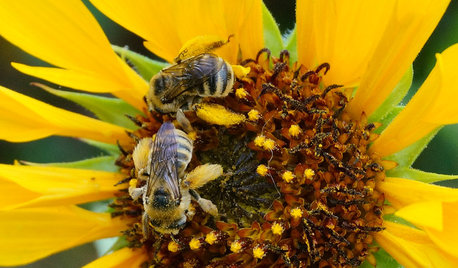
EARTH DAY12 Entertaining ‘Bee-haviors’ of Native Bees
The parade of pollinator antics is another reason to create a garden that nurtures native bees
Full Story
GARDENING FOR BUTTERFLIESGardening for the Bees, and Why It’s a Good Thing
When you discover how hard bees work for our food supply, you may never garden without them in mind again
Full Story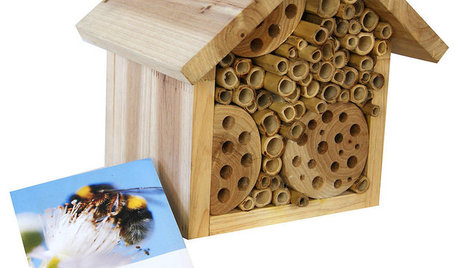
PRODUCT PICKSGuest Picks: 20 Ways to Play Garden Host to Birds and Bees
Perch some of these houses and feeders around your garden, and watch pollinators and feathered friends flock in
Full Story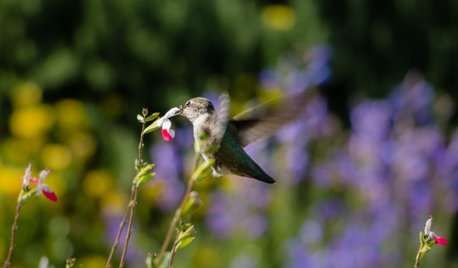
GARDENING GUIDESAttract Hummingbirds and Bees With These Beautiful Summer Flowers
Roll out a welcome mat for pollinators to keep your landscape in balance and thriving
Full Story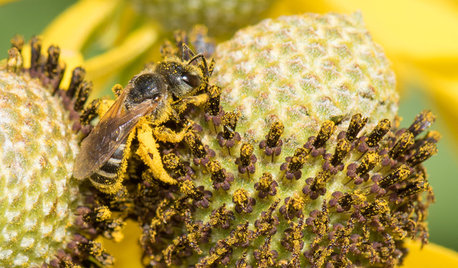
GARDENING GUIDESWelcome Sweat Bees to Your Garden Throughout the Growing Season
Look before you swat! These friendly sweat bees will feed on your sweat on a hot summer day, but their main buffet is flowers
Full Story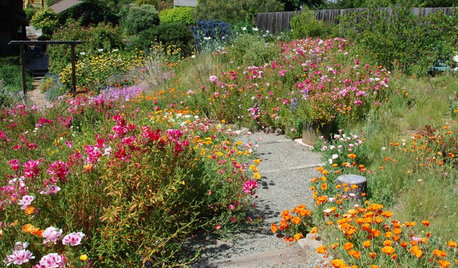
EARTH DAYHow to Design a Garden for Native Bees
Create a garden that not only looks beautiful but also nurtures native bees — and helps other wildlife in the process
Full Story


thisbud4u